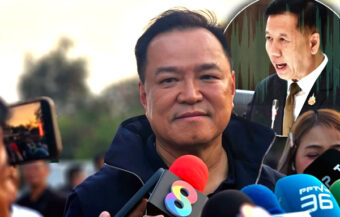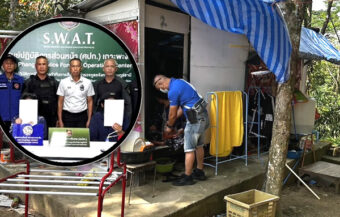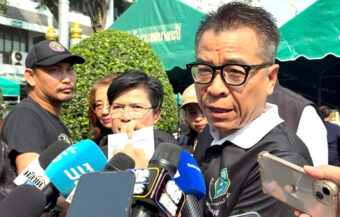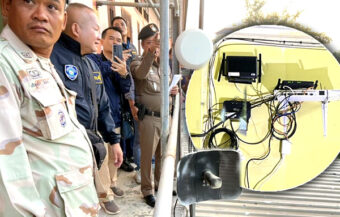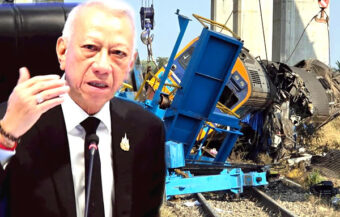Thailand’s Commerce Minister has been reported as upbeat and hopeful for a historic breakthrough being announced at the summit on the launch of the Regional Comprehensive Economic Partnership, the world’s biggest free trade deal among Asia Pacific economies but it is understood that India has thrown a spanner in the works at the last minute.
US President Donald Trump will not be at this week’s ASEAN and East Asian summit but will be represented by the US National Security advisor Robert C O’Brien and US Commerce Secretary Wilbur Ross. Mr Ross will be in Bangkok with a high powered trade team from November 2nd to November 8th. He will address the Indo-Pacific Business Forum on Monday.
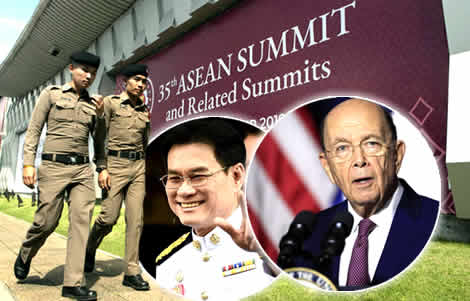
The choice of US representatives tells us clearly, the US has sent a delegation to the summit to talk business and they mean business. This is all about trade.
The US President will not be attending, despite indicating acceptance of an invitation extended in New York when the Thai Prime Minister visited the city and the United States in September.
Since then, the US has announced the withdrawal of Thailand’s preferred status under the General System of Preferences scheme which is seen as a body blow to Thailand’s already floundering export base. The US is Thailand’s second-biggest trade partner with exports to the superpower worth nearly ฿1 trillion per annum to the kingdom.
Trump sends his National Security advisor
The US National Security Advisor Robert C. O’Brien will attend the summit representing President Trump accompanied by Commerce Secretary Wilbur Ross.
It would be wrong to interpret this deputation as low key, an afterthought or a snub as some in Bangkok are seeing it. This is the appropriate team for the occasion. It sends a signal that the US is now engaging with Thailand in terms of trade in the real world beyond platitudes and goodwill and that last Friday’s sudden move was an opening shot in a new approach.
Things have changed in the relationship between Thailand and the United States and the trade relationship is centre stage.
Wilbur Ross is the key architect of US trade policy
In all the US president trade moves including those with China, the EU and most recently India, Mr Ross has been at the centre of the US side consulting with the President under the canvas of the US trade wagon.
He is a key actor in the Make America Great Again campaign which is being implemented through trade diplomacy. It is a trade policy that is universally despised by those who advocate a global approach to world economics but one that is now challenging and even dominating the world’s economic agenda.
Trade relations between the United States and India
It is a very similar story to the relationship between the United States and India. In early October, Mr Ross urged the Indian government to take decisive action to allow a new trade deal to be brought about between Washington and New Delhi when he met Indian Commerce Minister Piyush Goyal.
Thai Commerce Minister Jurin Lasanawisit as been deflected this week by the October 22nd broadside from Washington
The Thai Commerce Minister Jurin Lasanawisit, whose primary focus during Thailand’s Chair of the ASEAN bloc has been to bring about the conclusion of the gigantic Regional Comprehensive Economic Partnership agreement between ASEAN and six other key Asia Pacific trading nations including India, China, South Korea, Australia, New Zealand and Japan, must have been frustrated this week as the US move last Friday has drawn his attention away while India has thrown some eleventh-hour obstacles up to finally completing the pact.
He was reported on Thursday to be reaching out to the US trade delegation to find out more about last Friday’s suspension of Thailand’s trade status and explore the formal reason behind the move which was given as failure to improve Labour laws in the kingdom.
Optimistic of breakthrough up to recently
The minister was optimistic some weeks ago that the huge trade pact which would be the biggest in the world with half the world’s population and at last 30% GDP would be announced at the Bangkok summits sometime between November 2nd and 4th.
India has raised last-minute problems
That has now been thrown into doubt by last-minute details and questions raised by India which has consistently been the most recalcitrant player in the talks fearing the pact will give China too many advantages in the Asia Pacific and the effect on its domestic markets.
The United States will also be wary of the new trade deal and also being excluded from the biggest free trade area in the world. This is not the vision it is pursuing
It is understood that an agreement was near completion before India raised further issues linked with duties and product access. China is pushing to have the deal completed as are the Thai authorities in Bangkok.
Deal still in the balance as the summit goes on
The deal is still in the balance and this may explain why the US President could not have attended the summit. To be present at the announcement of this historic breakthrough for trade in the Asia Pacific region which excludes the United States would hardly make for good optics back home where the US President is dealing with an impeachment process which daily grows more aggressive.
Expert – not optimistic it will be announced
‘I have been quite sceptical of a robust RCEP coming to conclusion, due entirely to India’s intransigence,’ Richard Rossow of the Center for Strategic and International Studies in Washington said this week in a report by the Bangkok Post.
Summit sees Thailand closely working with China on trade as it champions the RCEP
The summit and its dynamics bring it clearly to the fore that Thailand, at least in terms of trade is becoming a Chinese ally and if this trade war continues to escalate between the United States and China, it increasingly runs the risk of becoming a US foe. This is the result of the bilateral trade policy being pursued by the US President and his Commerce Secretary Wilbur Ross.
US administration has a different world view
To global economists, of course, this is anathema as they regularly point out that that global trade is not a ‘zero-sum’ game but the US president and his team see it somewhat differently as the US for year failing to exploit its economic advantage for the benefit of the Americans who make Trump’s voter base.
The huge security operation in Muang Thong Thani outside Bangkok for world leaders
The summit will see world leaders from around the world attend at the gigantic Muang Thong Thani complex on the outskirts of Bangkok where extensive drills and security operations are taking place this week.
The Chinese Premier Li Keqiang and Japanese Prime Minister Shinzo Abe will be among a host of world leaders attending both the ASEAN Summit and its accompanying event, the East Asia Summit.
Further reading:
PM readies his team to tackle the US withdrawal of Thailand’s preferred partner status



